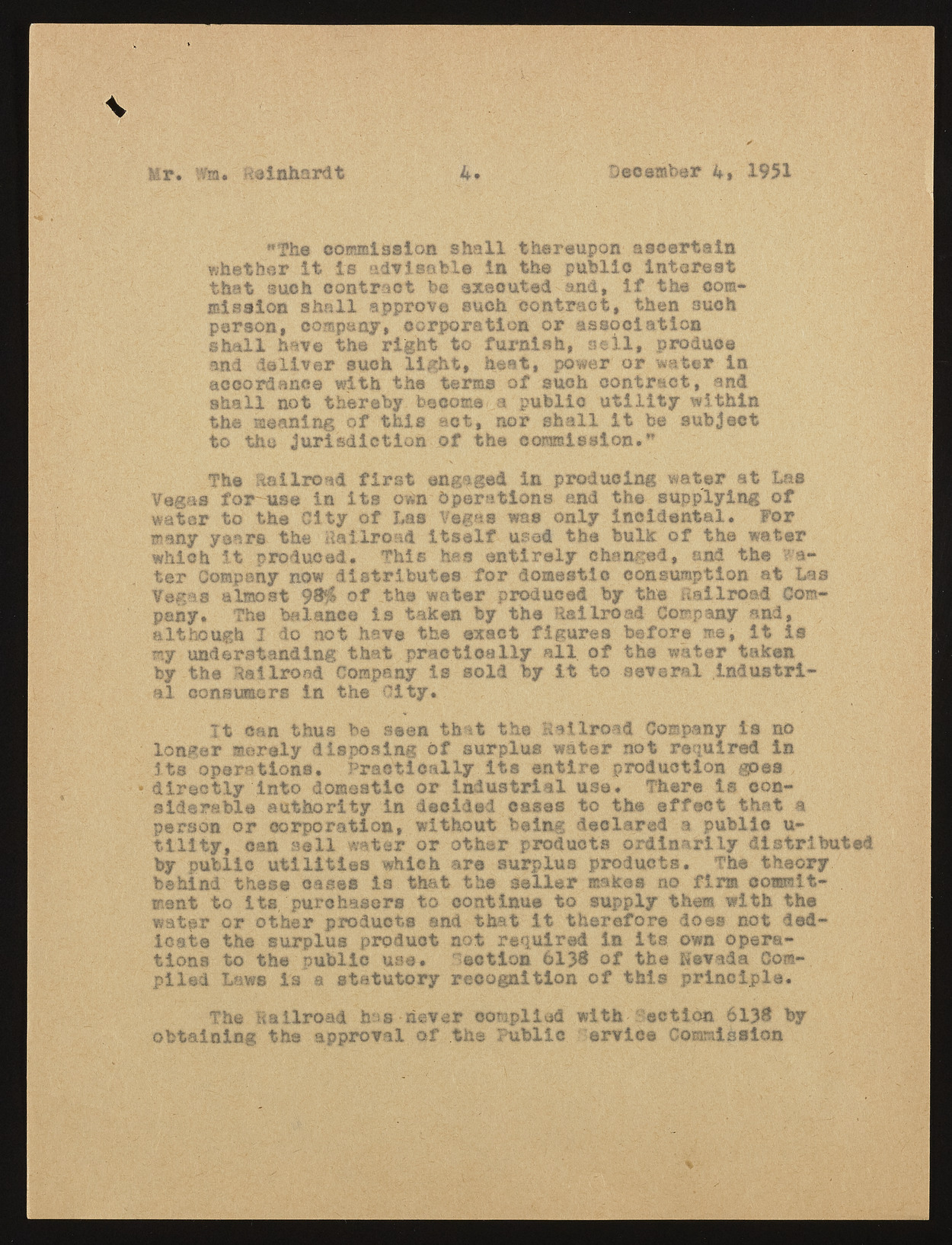Copyright & Fair-use Agreement
UNLV Special Collections provides copies of materials to facilitate private study, scholarship, or research. Material not in the public domain may be used according to fair use of copyrighted materials as defined by copyright law. Please cite us.
Please note that UNLV may not own the copyright to these materials and cannot provide permission to publish or distribute materials when UNLV is not the copyright holder. The user is solely responsible for determining the copyright status of materials and obtaining permission to use material from the copyright holder and for determining whether any permissions relating to any other rights are necessary for the intended use, and for obtaining all required permissions beyond that allowed by fair use.
Read more about our reproduction and use policy.
I agree.Information
Digital ID
Permalink
Details
More Info
Rights
Digital Provenance
Publisher
Transcription
Mr. Wm. Reinhardt 4. December 4* 1951 *»1*h.e commission shall thereupon ascertain whether it Is advisable in the public interest that such contract be executed and, if the commission shall approve such contract, then such person, company, corporation or association shall have the right to furnish, sell, produce and deliver such light, heat, power or water la accordance with the terms of such contract, end shall not thereby become a public utility within the meaning of this act, nor shall it be subject to the Jurisdiction of the commission." The Railroad first engaged in producing water at Las Vegas for~use in its own Operations and the supplying of water to the City of Las Vegas was only incidental. For many years the Railroad itself used the bulk of the water which it produced. This has entirely changed, and the we*,, ter Company now distributes for domestic consumption at Las Vegas almost 98$ of the water produced by the Railroad Company. The balance is taken by the Railroad Company and, although I do not have the exact figures before me, it is my understanding that practically all of the water taken by the Railroad Company is sold by it to several industrial consumers in the City. It can thus be seen that the Seilroad Company la no longer merely disposing of surplus water not required in its operations. Practically its entire production goes directly into domestic or Industrial use. There is considerable authority in decided oases to the effect that a person or corporation, without being declared a public u-billiy, can sell water or other products ordinarily distributed by public utilities which are surplus products. The theory behind these oases is that the seller stakes no firm commit- . mant to Its purchasers to continue to supply them with the water or other products and that it therefore does not dedicate the surplus product not required in its. own operations to the public use. ' ©ctlon 6138 of the Nevada Compiled Laws la a statutory recognition of this principle. The Railroad h-ss never complied with ection 6138 by obtaining the approval of th© Public ervice Commission

